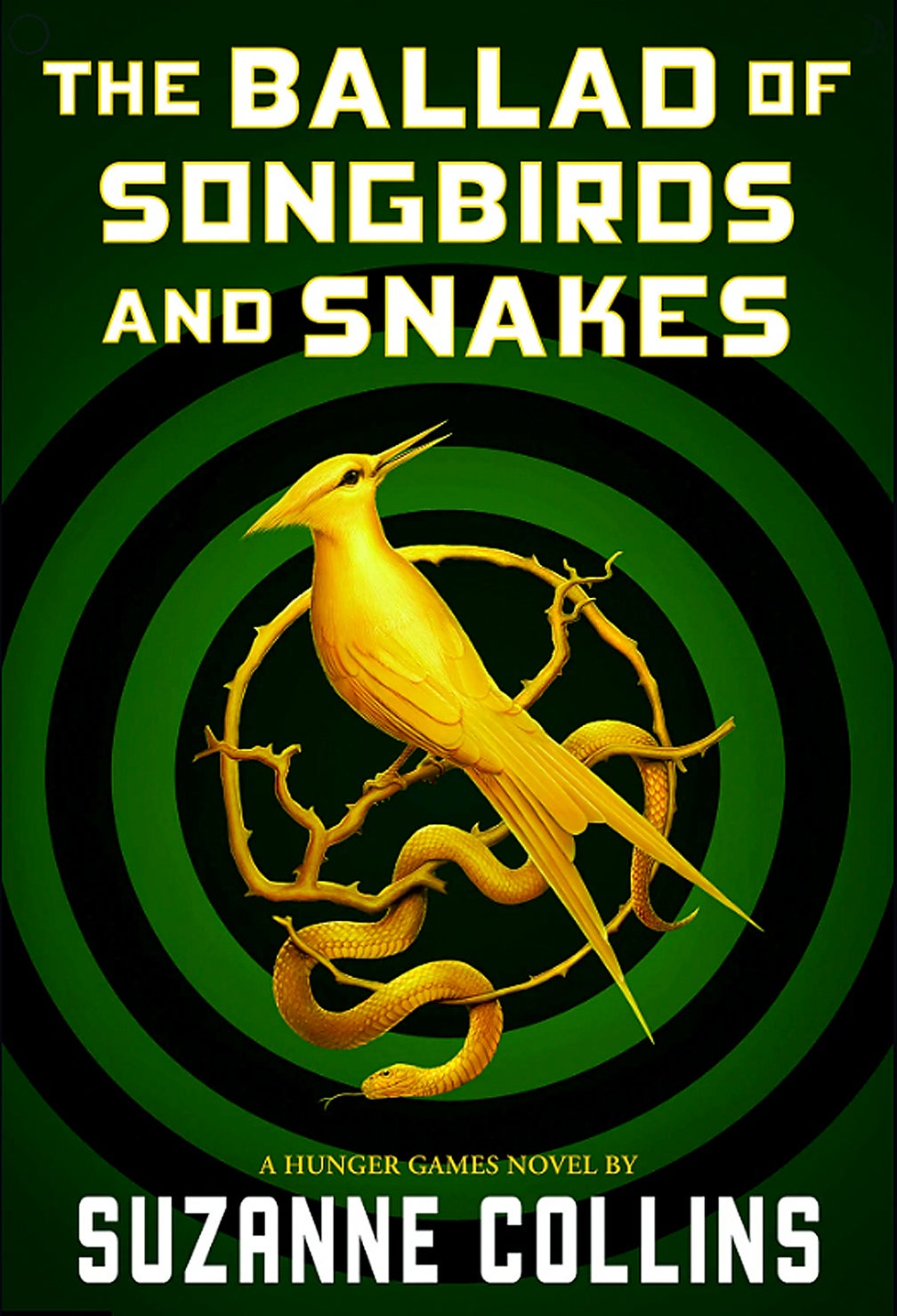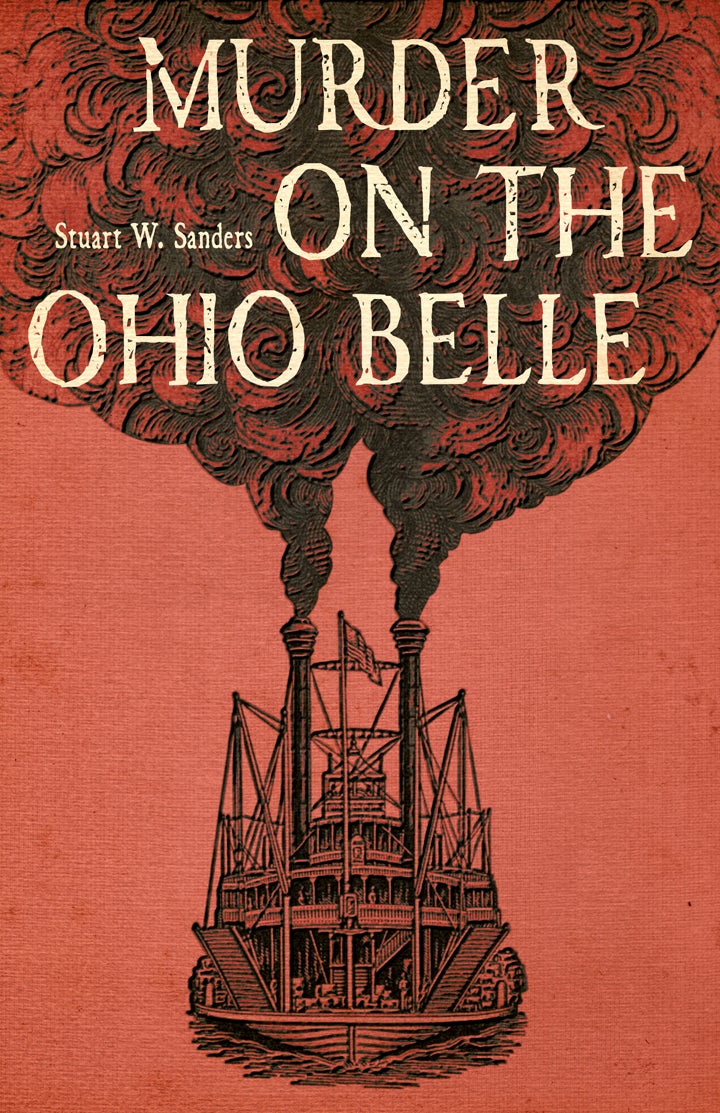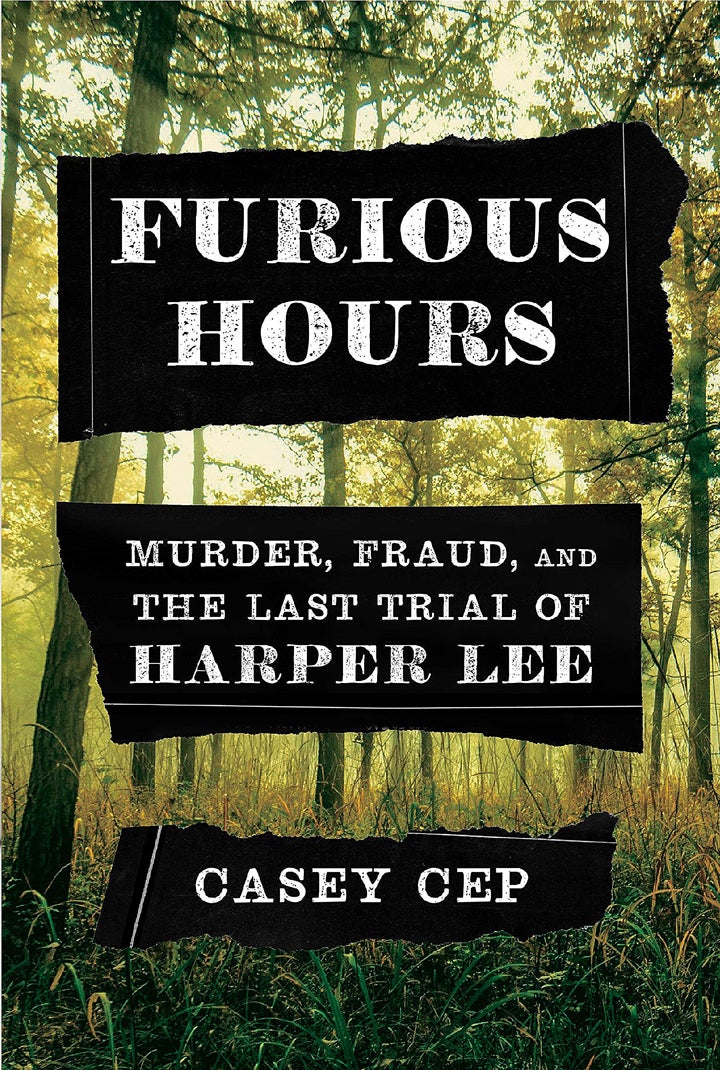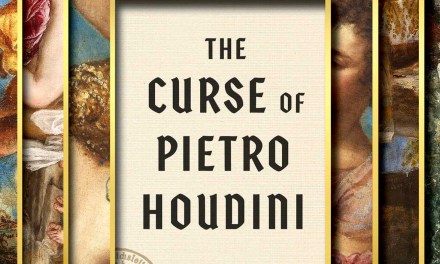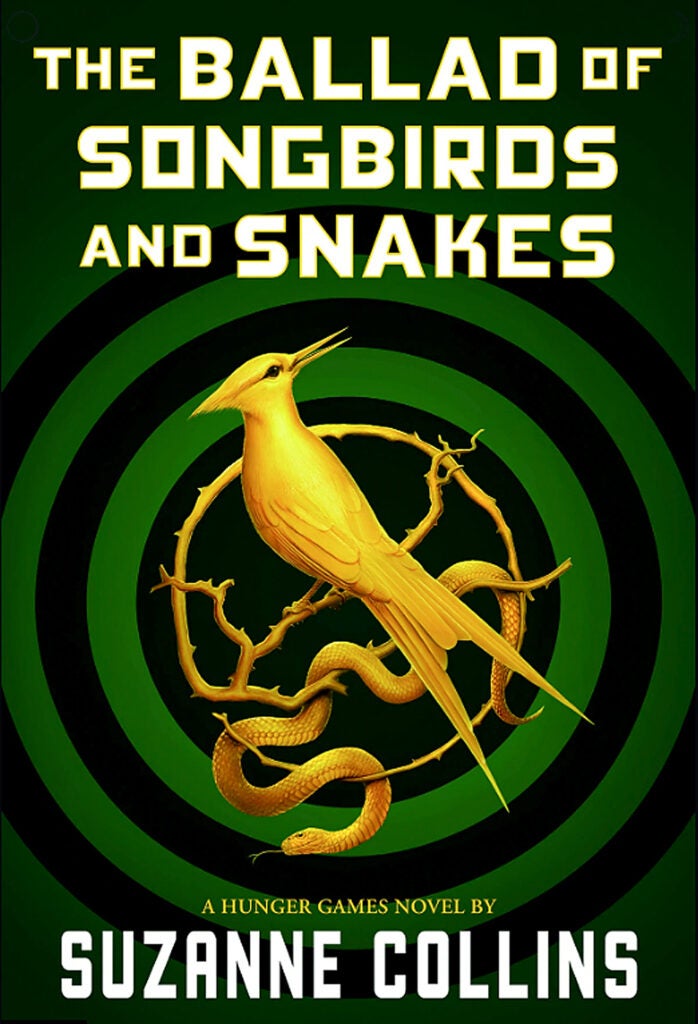
“The Ballad of Songbirds and Snakes” by Suzanne Collins
It has been almost 12 years since “The Hunger Games” became an essential young adult fiction read. After the success of the book trilogy and movie franchise, Suzanne Collins takes us back to Panem for the 10th annual Hunger Games.
Future villain President Snow is not yet in power, but a young student living in the Capitol. Coriolanus Snow is mentoring a tribute in the Games. With a lost family fortune on the line, Snow must fight to win a scholarship in order to maintain his family’s status and avoid poverty.
Snow is assigned District 12’s Lucy Gray, a musician who intrigues the people of Panem with song at her reaping. Lucy Gray has a fire in her much like Katniss, but we also see a more subtle version of a tribute. Lucy’s songs add a softness to Panem, and the lyrics reveal the soul of the people living in District 12.
This prequel to “The Hunger Games” is a more mature and philosophical book than those of the trilogy. If the reader is expecting a nonstop, action-packed novel like the original works, they could be easily disappointed.
This book takes its time to set the scene. There is much detail regarding the politics of Panem and the Capitol. Collins spends a lot of time describing the game-making process of the Hunger Games. The book also explores Snow’s mind and daily life, revealing how he thinks and reacts to situations.
It shows Snow’s desperation to keep himself, and what little family he has left, free from poverty. While “The Hunger Games” is more understated with its philosophical ideas, “The Ballad of Songbirds and Snakes” is very heavy-handed.
The last 1/3 of the book, which takes place in District 12, is the most interesting part and worth sticking around for. The ending leaves much for the reader to infer and to decide what happens. There is also plenty of mystery if Collins wants to follow up with another prequel sequel.
“The Ballad of Songbirds and Snakes” does an amazing job of showing Coriolanus Snow as a sympathetic character, but also not excused from becoming the evil President Snow in the future. Readers will sympathize with his circumstances, but will also see how small decisions along the way are what lead him to his power and hate for rebellion.
“The Ballad of Songbirds and Snakes” is already slated to become a movie with Suzanne Collins assisting with the screenplay. Whether or not it remains a stand-alone prequel, this book proves that there is more of a story to tell in Panem.
~Reviewed by Grace Wilson, Paul Sawyier Public Library
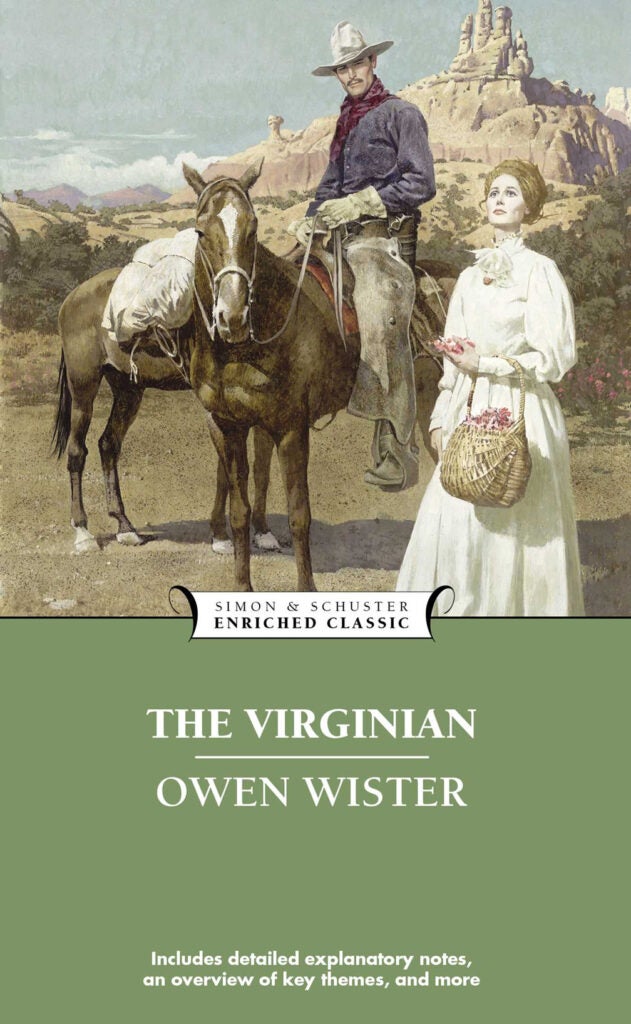
“The Virginian” by Owen Wister
Owen Wister’s book, written in 1902, is credited with being the first true western and probably started the “western” genre craze back in the day. This book is where we get many of the stereotypes seen in movies and on television. As you read along, you’ll recognize some of the clichés and one-liners you’ve heard during a movie. This book is where they got them.
The story is fairly straight forward with the tall handsome stranger working on a cattle ranch in Wyoming, the school marm from back East and the villains and ruffians who meet with justice at the hands of the cowboy. As the story takes place over a period of years we connect with the characters as they deal with the rugged life of Wyoming.
If you are familiar with the television show “The Virginian,” prepare yourself as the show is not like the book at all. Some of the characters are the same, but the storyline is not. The first of its kind this book is fun, heroic and romantic. A wonderful old-fashioned read that is quite philosophical.
— Reviewed by Paul Sawyier Public Library
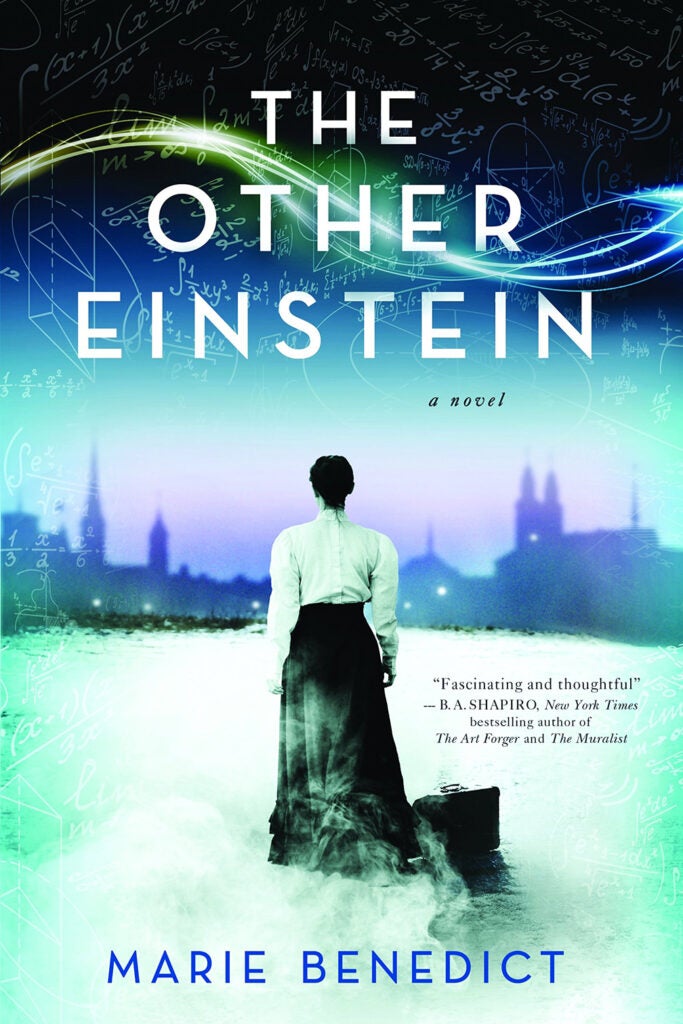
“The Other Einstein: A Novel” by Marie Benedict
Females born in the late 1800s, were raised in domesticity, and eventually married to nurture their own family. But, if you were physically handicapped from birth, your life options would be severely limited.
Mileva Maric was such a girl, born with a congenital hip defect. However, while her mother was concerned for her daughter’s lack of marital qualifications, her father dedicated his efforts to teaching her math and science so she could become a teacher.
Even though education was denied to women in Serbia, the Maric family sent their daughter to the Swiss Federal Polytechnic in Zurich. Mileva suffered the prejudices of her classmates, but was befriended by a small group of women also studying in other fields.
The support of this group gave Mileva the confidence to share her calculations and theories with her colleagues. Albert Einstein was one of those that sought after her, pulling her into intellectual debates in the cafes.
Benedict states in her author notes that it was a paper written by her son about Einstein that mentioned his first wife was also a physicist. Benedict wondered who was this unknown woman with a university education?
In the 1980s, a cache of letters was discovered between Mileva and Einstein. In those letters from 1897 to 1903, they discussed their shared projects. There is speculation the she assisted him with complicated mathematical calculations, but others say she provided the guidance for his Theory of Relativity.
Mileva and Einstein were married and had three children together. Even though her story was overlooked in the shadow of Albert Einstein, Benedict composes an interesting fictional life of “what-ifs.”
—Reviewed by Lizz Taylor, Poor Richard’s Books
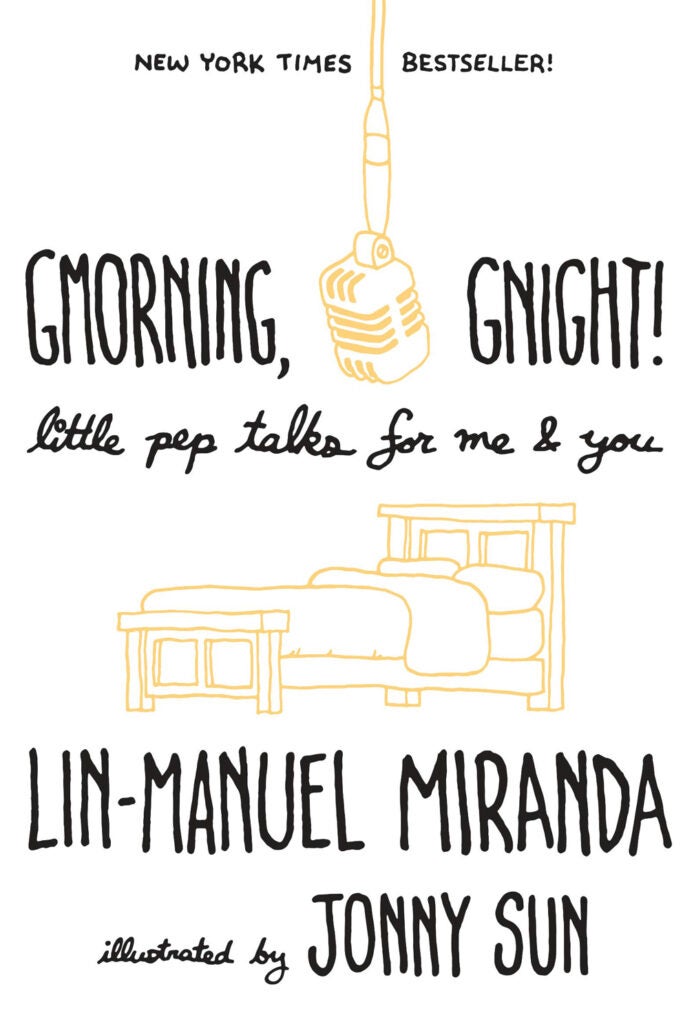
“Gmorning, Gnight!: Little Pep Talks for Me and You” by Lin-Manuel Miranda
Lin-Manuel Miranda is an award-winning composer, lyricist and performer. His musical production of “Hamilton” won the 2016 Pulitzer Prize for Drama. He has contributed lyrics and music to Disney’s “Moana.”
But many know him from his Twitter account where he posts words of encouragement each morning and night. Miranda begins each day with an inspirational greeting for his followers, and this book is a collection of the most popular.
During the recent months of dealing with the requirements of avoiding COVID-19, the fallout of short supplies and working from home, many of us have exhausted our mechanisms for coping with chaos. Every day has required a new set of problem solving skills and the mental exhaustion has taken a toll.
Miranda’s brief observations can be read in a minute, and can become a constant reminder of using kindness and empathy throughout the day. The evening messages are meant to comfort and calm us for sleep.
Gmorning!
The moment that connects you to your true passion might be on the other side of breakfast.
Or Just a baby step there.
Let’s see.
Gningt!
The moment that connects you to your true passion
might be on the other side of tonight.
Or just a baby step there.
Let’s see!
Miranda says he composes these pep talks by “writing what I wish somebody would say,” then switching the pronoun to you so it applies to all. The messages are short enough to recall throughout the day, and uses the language of mindfulness. Enjoy the poetry, but take the message to heart!
— Reviewed by Lizz Taylor, Poor Richard’s Books

